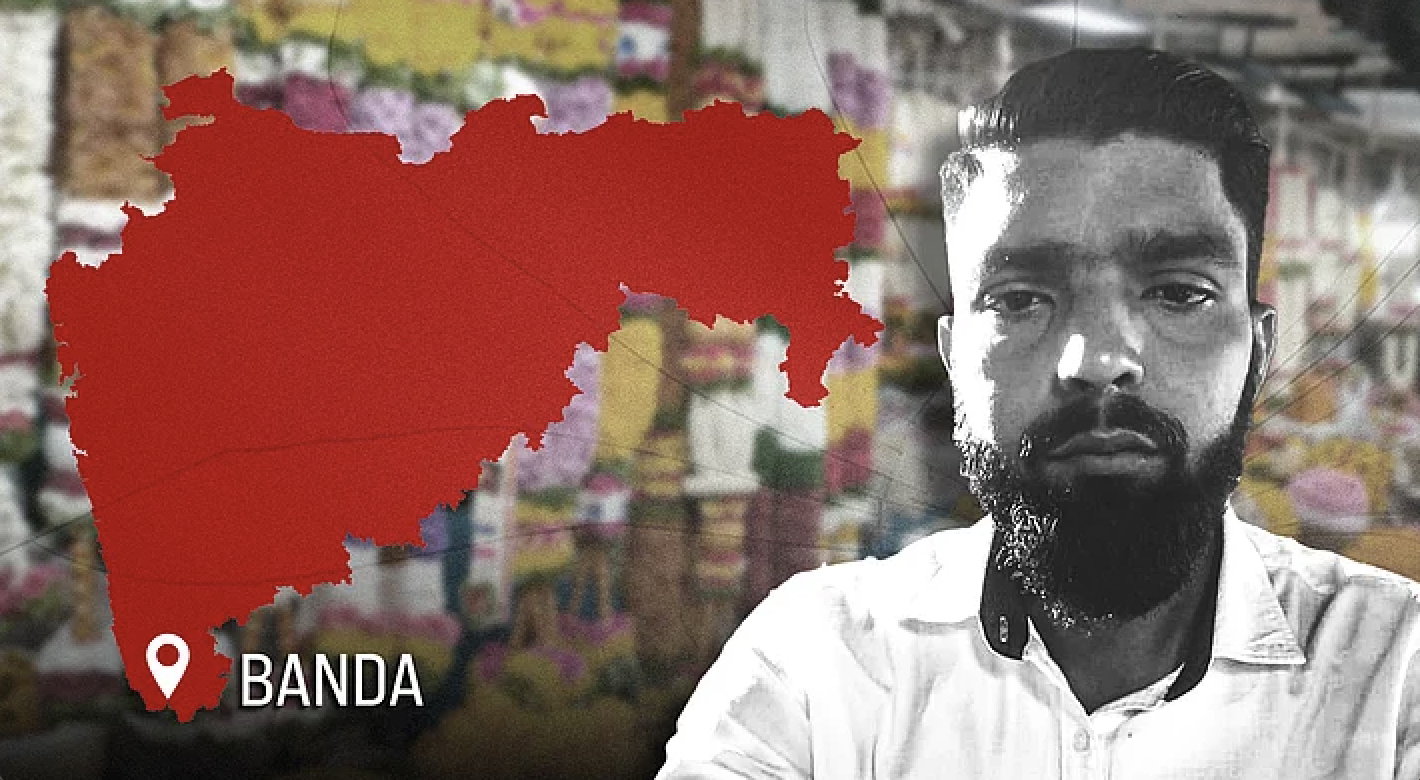
It was a warm summer morning in May in the quiet border village of Banda, nestled in Maharashtra’s Sawantwadi taluka of Sindhudurg district, near the Goa border. At a small flower stall in the bustling Bazaar Peth market, 38-year-old Aftab Shaikh and his mother, Fahmida, were arranging garlands and flowers for the day’s temple visitors.
Aftab had diabetes and hypertension. As he sat beside his mother, a local maulana passed by. Fahmida called out and asked the maulana for “dua ka paani” – an Islamic ritual where one prays over water for healing and blessings.
According to Aftab’s family, the maulana agreed. He procured a Rs 10 bottle of water, recited versions from the Quran, and performed the blessing – praying over the water, blowing on it, and then passing it to Aftab, who drank from the bottle.
Aftab’s family described it to Newslaundry as a simple blessing. However, a local Hindutva group accused the maulana of “spitting” into the water, and accused Aftab of then pouring this supposedly tainted water over the flowers that would be purchased by innocent temple-goers.
By the end of that day, a mob gathered. Aftab and his family were threatened and their shop shut down. Over the next few months, the police and local administration refused to intervene to help them reopen the shop.
On October 28, Aftab recorded a video detailing everything he’d gone through. He died by suicide, and the family had to struggle to get an FIR registered.
“My son was a kind, simple man,” Aftab’s mother told Newslaundry. “I still can’t understand why anyone would hate him so much.”
This story was originally published in newslaundry.com. Read the full story here.

